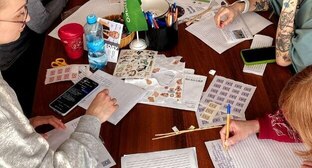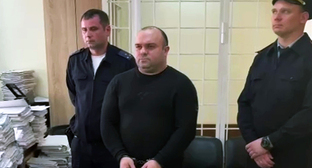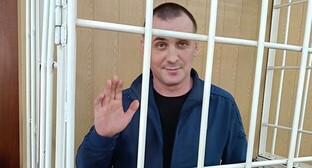24 May 2003, 00:00
Karachaevs
They call themselves karachailula. A nation in the Karachaevo-Cherkessk Republic and in the Stavropol district of the Russian Federation. According to the census of 1989 their population was over 150,3 thousand people, including their population in Karachaevo-Cherkesia - over 109 thousand.
The language is of Karachaevo-Balkar West-Kupchak sub-group of the Turk group of the Altai family. Russian language is also common. Written language is based on Russian alphabet. Religious people are Moslems-sunnits.
In the ethnogeny of Karachaevs there participated the local tribes that lived here since the Bronze Age as well as the newly come - Alans, ancient Bulgars, Kupchaks. Until the middle of the 19th century Karachaevs had feudal-partiarchal type pf relations. The territory of Karachaevs joined Russia in the beginning of the 19th century. In 1922 there was formed the Karachaevo-Cherkesskaya Autonomous District; in 1943 the autonomy was abandoned, Karachayevs were settled out against the law. The Karachaevo-Cherkesskaya Autonomous District was restored in 1957, at the same time Karachaevs were allowed to return to their ethnic territory. In 1991 Karachaevo-Cherkesia received the name of a republic within the Russian Soviet Federative Socialist Republic.
The main traditional occupations are distant-pasture cattle-breeding (sheep, goats, horses, cattle) and agriculture (barley, wheat, corn, vegetables). Trades - making broadcloth, felt hats, burkas, making patterned felts, knitted woolen things.
Traditional villages - in the mountains, big, divided into blocks inhabited by the members of one clan. The dwelling is a rectangular one- or two-room wooden structure with a two-slope earthen roof. Inside there`s a fire-place by the wall.
The national costume of Karachaevs is similar to the costume of the other peoples of the North Caucasus. Nowadays there retained the male head gear (papakha, felt hat), sheepskin coat. Older women continue to wear the national costume and its elements.
Main food - boiled and fried meat, fermented milk (airan), yogurt (gypy), unleavened bread made of corn and wheat flour. Rich folklore retained: Nart epic stories, historical, labor, satirical, love songs and lullabies, fairy-tales, proverbs, tales about Nasra Khoja (about Hoja Nasreddin), dances (group dance - sandyrak, slow dance for pairs - tuz and a fast dance of lezginka type - abezek). Traditional musical instruments - reed-pipe, 2-string violin, 3-string musical instrument played by plucking, a rattle made of small plane-tree planks.





Комментирование через Кавказский узел